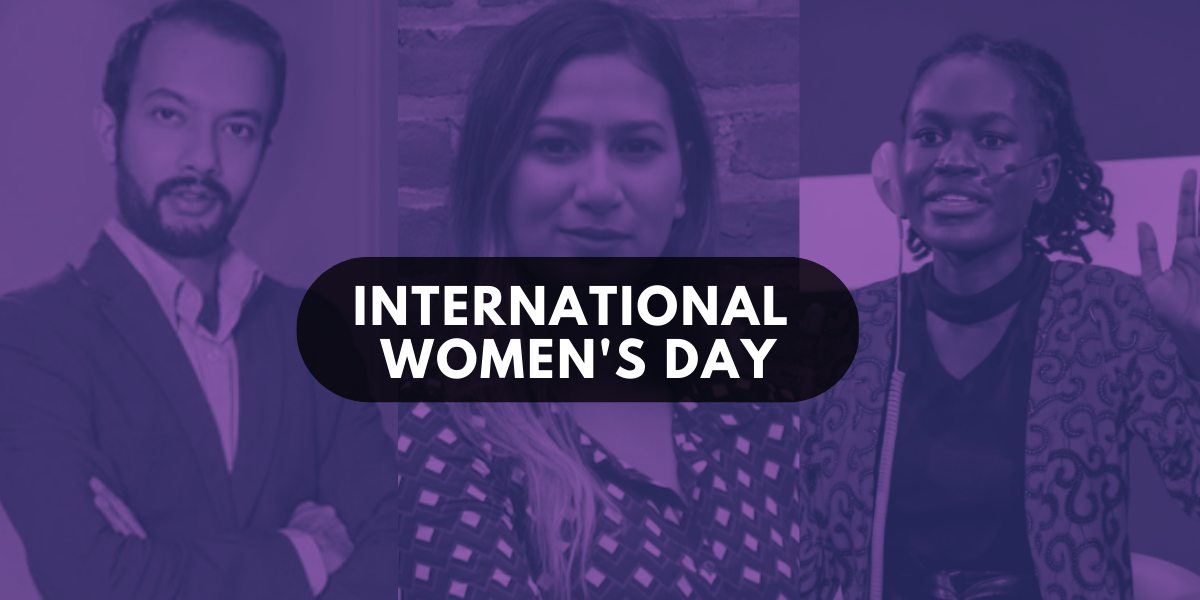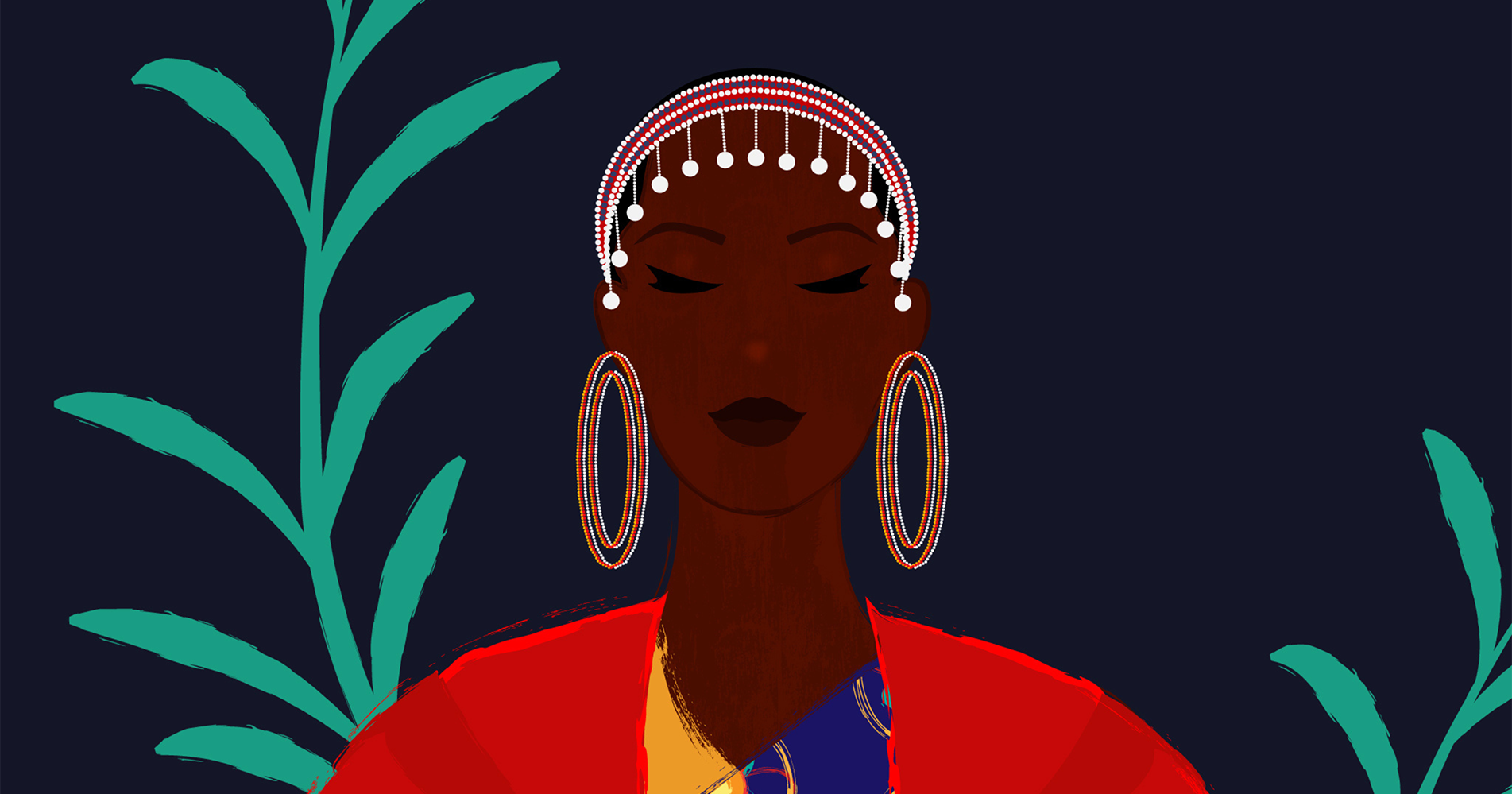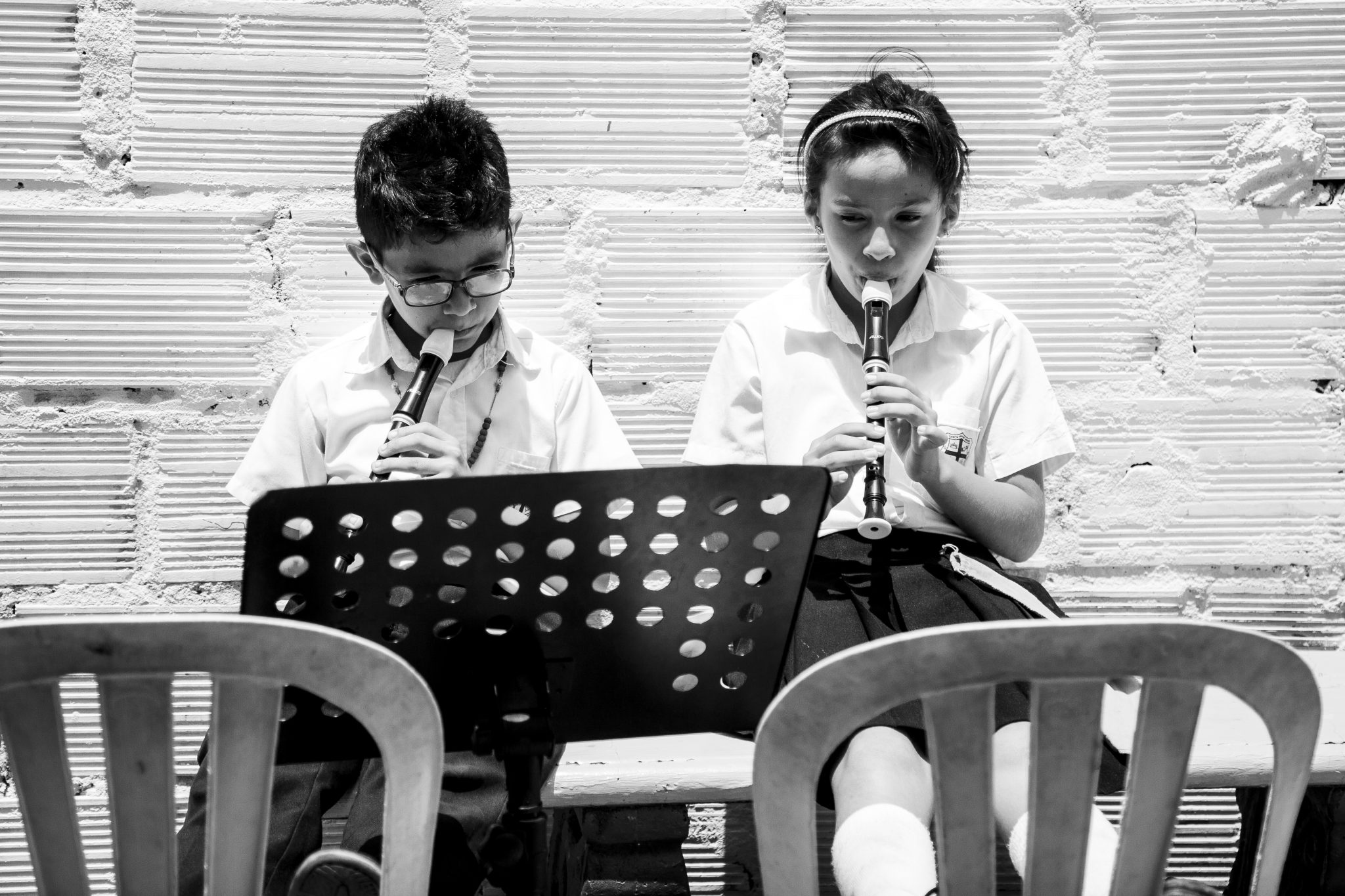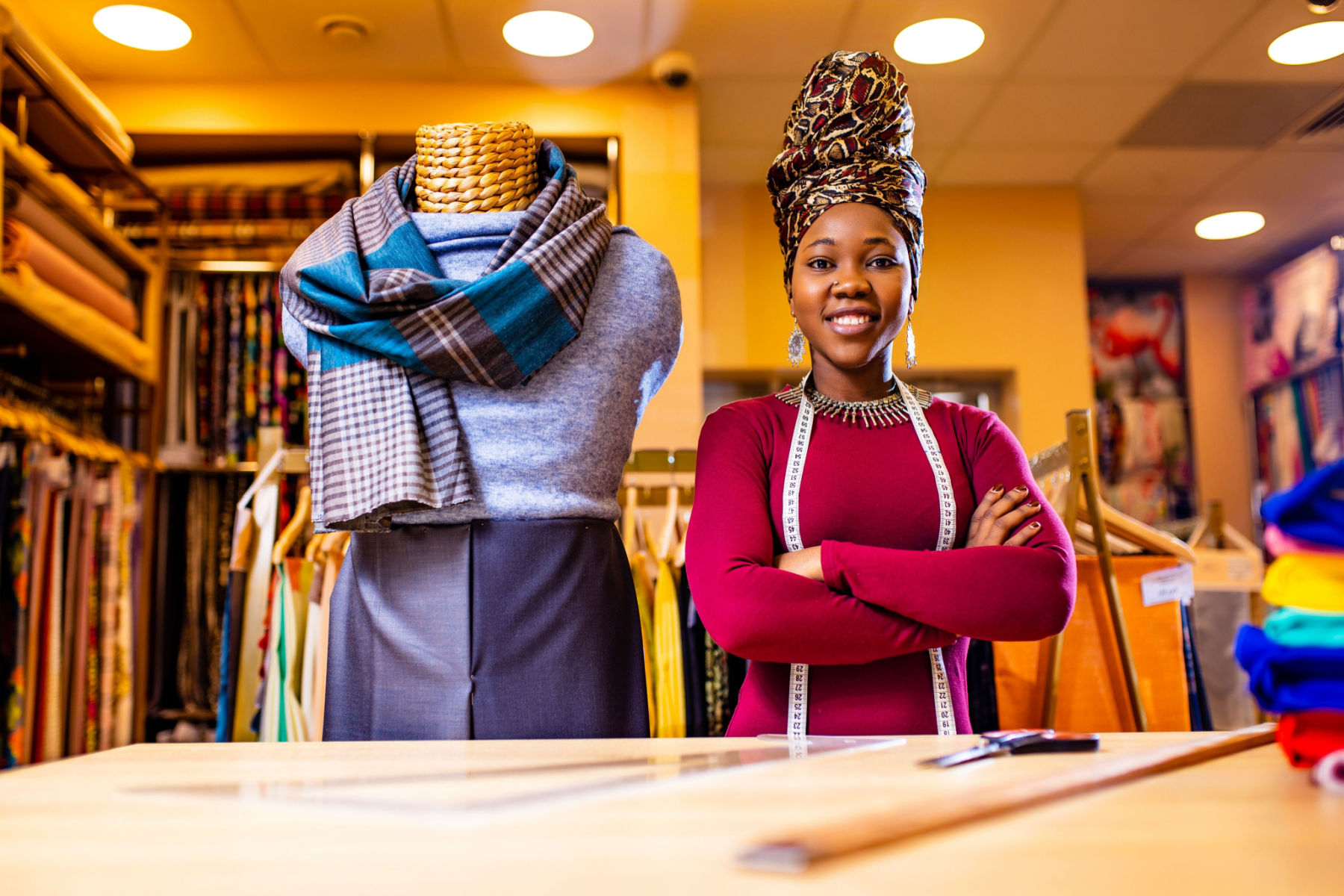IWD 2023: 3 examples of how technology is driving gender equality and inclusion around the world
This International Women’s Day (IWD), 8 March 2023, the United Nations (UN) is celebrating under the theme DigitALL: Innovation and technology for gender equality, recognising and celebrating the women and girls who are championing the advancement of transformative technology and digital education.
Bringing women and other marginalised groups into technology results in more creative solutions and has greater potential for innovations that meet women’s needs and promote gender equality. Their lack of inclusion, by contrast, comes with massive costs: as per the UN Women’s Gender Snapshot 2022 report, women’s exclusion from the digital world has shaved $1 trillion from the gross domestic product of low- and middle-income countries in the last decade—a loss that will grow to $1.5 trillion by 2025 without action.
At the Kofi Annan Foundation, we work with activists and partners worldwide who promote gender equality and women’s empowerment through technology.
Doris Leuthard, Former President of the Swiss Confederation and Kofi Annan Foundation board member, supports the Digital Trust Label initiative, the world’s first seal for trustworthy IT products. “Digital technologies, like all technologies, should be gender-neutral,” says Leuthard. “However, many of the algorithms on which they are built rely on skewed data and do not represent genders equally. The development of these algorithms tends to be opaque and complex [which] can be a serious problem, for instance, in the health sector. This is why it is important to increase trust through transparency, prevent discrimination in algorithmic systems and engage more women in the development and design of algorithms, systems and software.”
In celebration of this year’s IWD theme, we highlight three youth activists leveraging technology and innovation to promote gender equality and digital education.
 Stacy Dina: Using mobile technology to fight Female Genital Mutilation (FGM).
Stacy Dina: Using mobile technology to fight Female Genital Mutilation (FGM).
Stacy (she/her) helps young women and girls in Kenya escape FGM while educating the public on its effects. She aims to influence the government through the Ministry of Gender and Health to enforce policies against FGM in the future. Stacy is a Kofi Annan Changemaker.
How are you using technology to drive gender equality, and why is it so important?
My team and I are accelerating the fight against FGM by use of a mobile application, iCut, to connect girls at the risk of being cut to hospitals, relevant authorities and/or rescue centres. Additionally, I mentor young girls in high school on app development to spark their interest in tech and how they can use the skills learnt for social good.
What would you like people to know about the importance of embracing equity and promoting gender equality?
Addressing the existing digital gender divide will contribute to achieving equity and gender equality. With rapid digitisation, we need to ensure that tech is not taking over our jobs but rather an enabler to us doing our work more efficiently. Young women and girls must have the necessary skills to contribute to and thrive in the digital economy.
Learn more about iCut and Stacy:
- Visit the iCut website
- Find the iCut team on Twitter
- Find iCut on Facebook
- Find the iCut team on Instagram
 Syed Ali Abbas Zaidi (Ali): Creating dialogue on equality and inclusion with 3D holographic technology.
Syed Ali Abbas Zaidi (Ali): Creating dialogue on equality and inclusion with 3D holographic technology.
Ali (he/him) is the Executive Director and co-founder of HIVE Pakistan (HIVE), a social impact organisation working to address issues of extremism and marginalisation. HIVE strives to work for an inclusive, equal and peaceful Pakistan. Ali is an Extremely Together Young Leader.
How have you been using technology to drive equality?
HIVE has screened 24 holographic projections of Quaid-e-Azam Muhammad Ali Jinnah, the founder of Pakistan (and a great leader who united the people of Pakistan), delivering speeches on inclusivity and equality. Through our 3D holographic technology, we recreated Jinnah’s statements on interfaith harmony, inclusive development, women empowerment and pluralism. The hologram was screened in public places in six cities, engaging more than 50,000 people and reaching millions online.
The power of memory and spoken accounts hold a large sway in the cultural storytelling context of Pakistan. Thus, using an innovative approach in presenting a revered figure, making it seem life-like, ignited latent and suppressed emotions and misconceptions that can drive Pakistanis toward hate and inequality.
“Our project was an effort (…) that wished to show the world that emerging technology can be harnessed as a peacebuilding tool to create meaningful experiences for audiences in a cost-effective and more impactful way than traditional methodologies.” – Syed Ali Abbas Zaidi.
How do you work to achieve gender equality?
Tech-driven innovation and tools can provide an enabling environment where cultural barriers of gender segregation exist. Intelligent use of tech can foster communities that are inclusive and participatory.
Another important thing for us is storytelling. Stories of success prime audiences to be more receptive to marginalised groups in relevant spaces. Building equal presence using positive narratives will naturally lead to calling out inequality.
What advice would you like to share with other young people interested in promoting gender equality?
True equality that challenges the status quo will always come in stages. We must not look for immediate results and gratification. Let us first embrace the idea, make small efforts to reclaim spaces, build strong networks of influence and then advocate for change.
Learn more about HIVE:
- Visit the HIVE website
- Follow HIVE on Facebook
- Follow HIVE on Instagram
 Fatima Zaman: Raising awareness of women’s sacrifices through podcasts and workshops.
Fatima Zaman: Raising awareness of women’s sacrifices through podcasts and workshops.
Fatima Zaman (she/her) is an activist of British Bengali heritage, specialising in women, peace and security. Having witnessed the London 7/7 Bombings, Fatima has dedicated her life to activism toward building peace, and security and overcoming extreme violence in conflict. Fatima is an Extremely Together Young Leader.
Is International Women’s Day different for you this year, and why?
It’s been a rough year for women.
Far too many women have suffered at the hands of the Taliban or are experiencing Russian aggression in Ukraine.
That is why this IWD, I want to commemorate women slightly differently. I want us to understand their sacrifices.
As an activist working on women, peace and security, I, too, have experienced the highs and lows of leadership. In a system designed to take the most from you, without pouring back in, sacrifice is something no one warns you of. It is something disproportionately women do more of than their male counterparts.
For the past year, I have been supporting an all-female-led organisation called WeBelong Europe. As the Global Strategic Advisor, I have helped launch WeBelong as a platform for bringing together Women from communities of colour. We started from a nascent idea of creating a safe space for young women to meet other young inspirational women using personal stories to connect, to turning personal stories into a successful podcast, to becoming a cornerstone of Equality, Diversity and Inclusion to other organisations who want a more gender inclusive ethos.
Through the series of podcasts, training and high-level workshops, we have created a ripple effect of challenging the conventional wisdom of what it means to belong, what it means to be a woman and how to build back from sacrificing bits of your identity in the endeavour of making change.
What message would you like to share with other young people about embracing equity and gender equality?
It’s simple. Wake up each day and remember representation matters, but it also inspires.
Learn more about Fatima:
- Follow Fatima on Instagram
- Follow Fatima on Twitter
At the Kofi Annan Foundation, inclusion, diversity, gender equality, and sustainability are at the heart of everything we do. Tolerance, intercultural dialogue and respect for diversity are more essential than ever in a world where people are becoming more and more closely interconnected.
This International Women’s Day, the Kofi Annan Foundation joins the UN in calling on all governments, activists and the private sector alike, to make the digital world safer, more inclusive and more equitable. Facing a multiplicity of global crises, we must harness the potential of digital technologies to help bridge divides, not create new ones.




